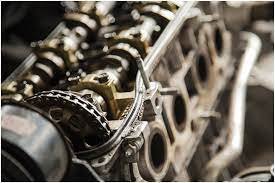To maintain smooth machine operation, a high-quality lubricating system is required. Lubricants have a variety of applications, but their fundamental function is to minimize friction between two mechanical parts. This, in turn, decreases wear, lowers operating temperatures, prevents metal surface corrosion, and assures smooth operation and the absence of impurities. Taking machine tool lubrication carefully will undoubtedly assist maintain your equipment while also increasing their lifetime. Furthermore, it is cost-effective and aids in the achievement of the company’s objectives.
For machine tools, there are two types of lubrication systems: oil and grease. Lubricants can be tailored with other ingredients depending on the component being machined to meet the demands of an operation. Choosing the appropriate combination will not only improve your machining process but will also prevent your machine from catastrophic damage.
Learn about the numerous facets of lubrication that contribute to a machine’s efficiency and smooth operation.
1. Lubricants for oil
Oil lubricants have a free-flowing consistency that is suitable for transporting heat away from the source. This helps to maintain the viscosity of the base oil and lowers the danger of heat-induced oxidation and the progressive loss of additives.
The composition of a lubricant begins with a base oil, which comes in three varieties: mineral, synthetic, and vegetable.
One of those critical parts of truck engine longevity is lube oil. It reduces friction to keep the engine running, eliminates heat from the engine, and transports dirt to the filters. As a result, it stands to reason that the engine’s filtration system is equally crucial.
The filter protects the engine from dirt, carbon, and metal particles. It is a crucial task, which is why fleets require the best lubricants for the job and must remain up to date on evolving technologies.
The advantage of oil lubrication is that its volume can be precisely regulated and modified without altering machine components. Machines that are oil-lubricated make it simple to test for wear metals, impurities, and fluid characteristics. This allows the oil to be better customized for operations.
Despite the fact that oil lubricants are still the favored choice over grease lubrication, research indicates that grease lubrication is more helpful.
2. Lubricants for grease
When it comes to maintaining CNC machine tools, grease lubrication outperforms oil lubrication.
Here are some of the benefits of grease lubrication:
3. inexpensive
Grease is not washed away by coolant and helps to keep the proper quantity of oil film on your machine’s components. When compared to oil, grease consumes less product. It is simple to operate and requires little upkeep.
4. Effective
Contamination is unlikely because it is stored in cartridges. It is not as dangerous as oil lubricants, and it nearly completely separates from the coolant, making it easier to clean. It keeps a consistent quantity of grease and consistency, allowing for stability while milling.
5. Environmentally friendly
It has a low odor factor, making the working atmosphere pleasant. The cartridge idea secures the product, making the floor and other sections of the shop floor safe to operate in.
Please contact the machine tools service team to learn more about the best lubrication system for your machining needs.


